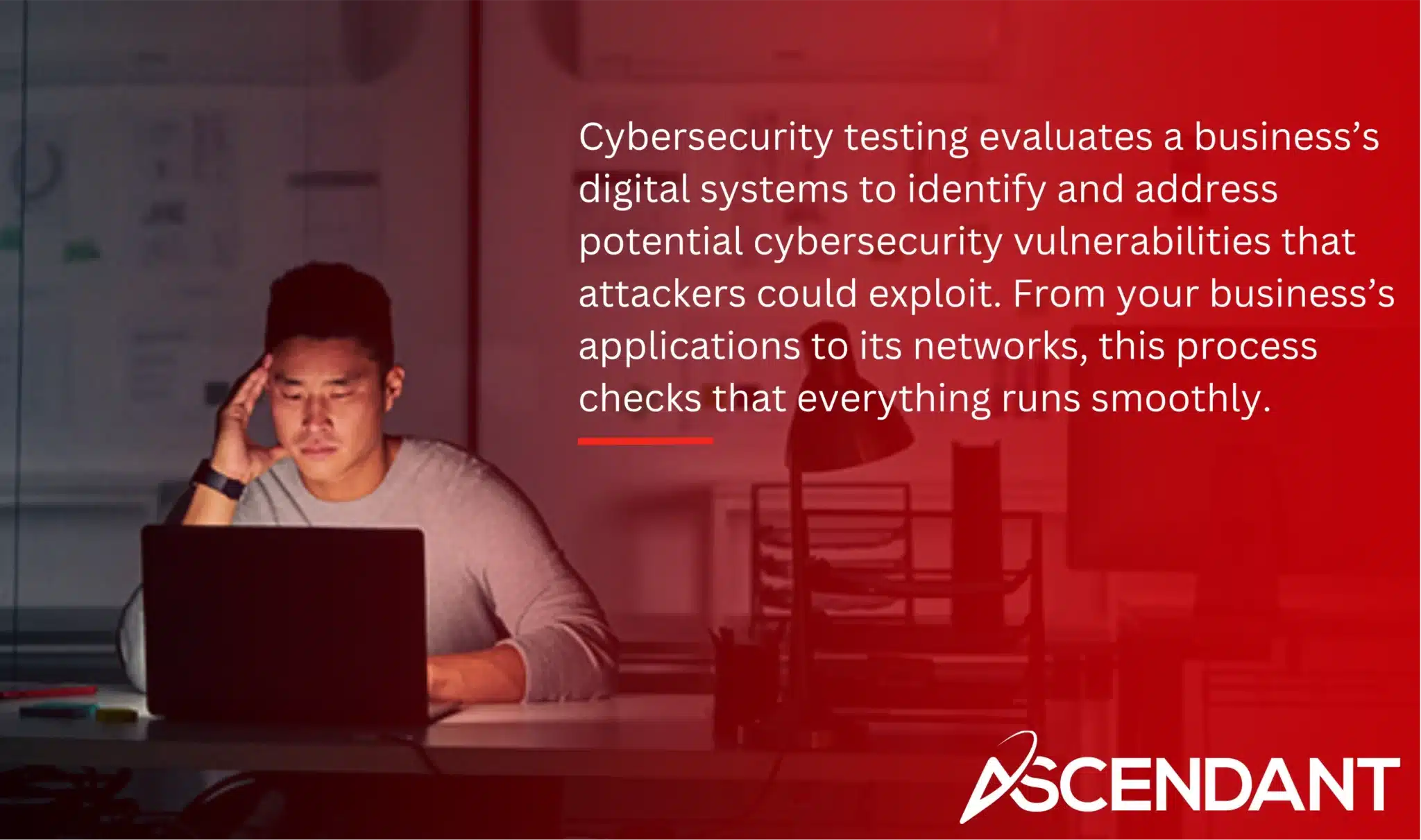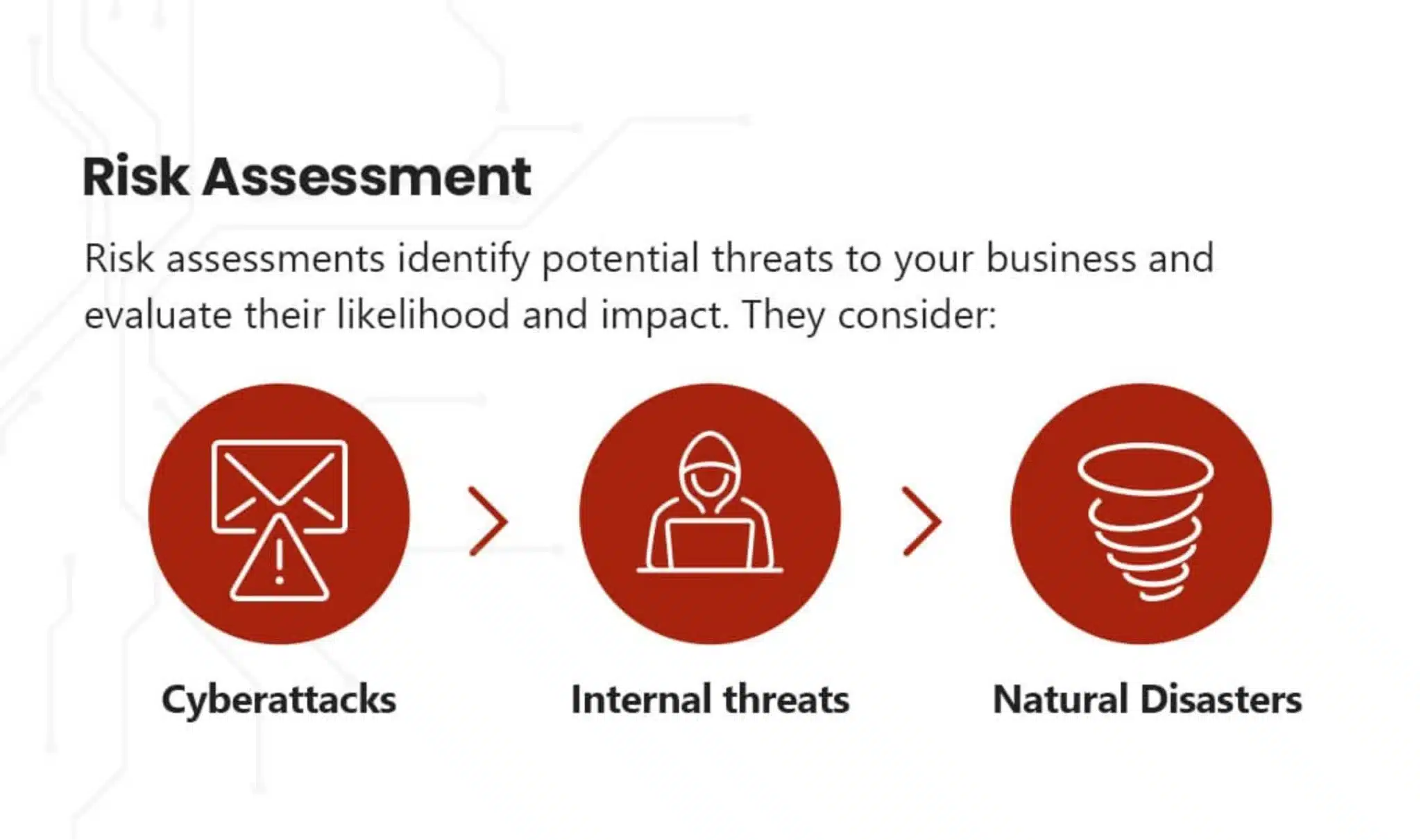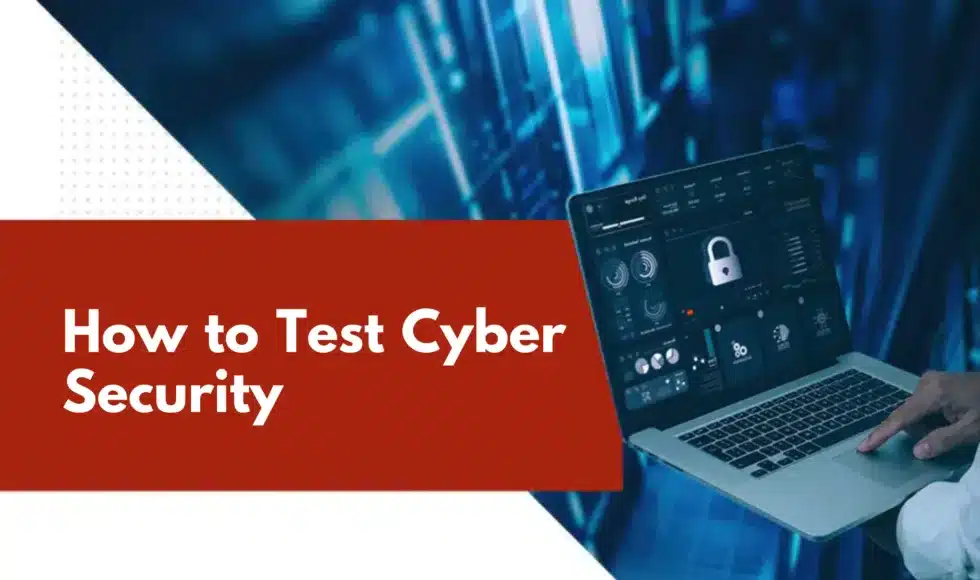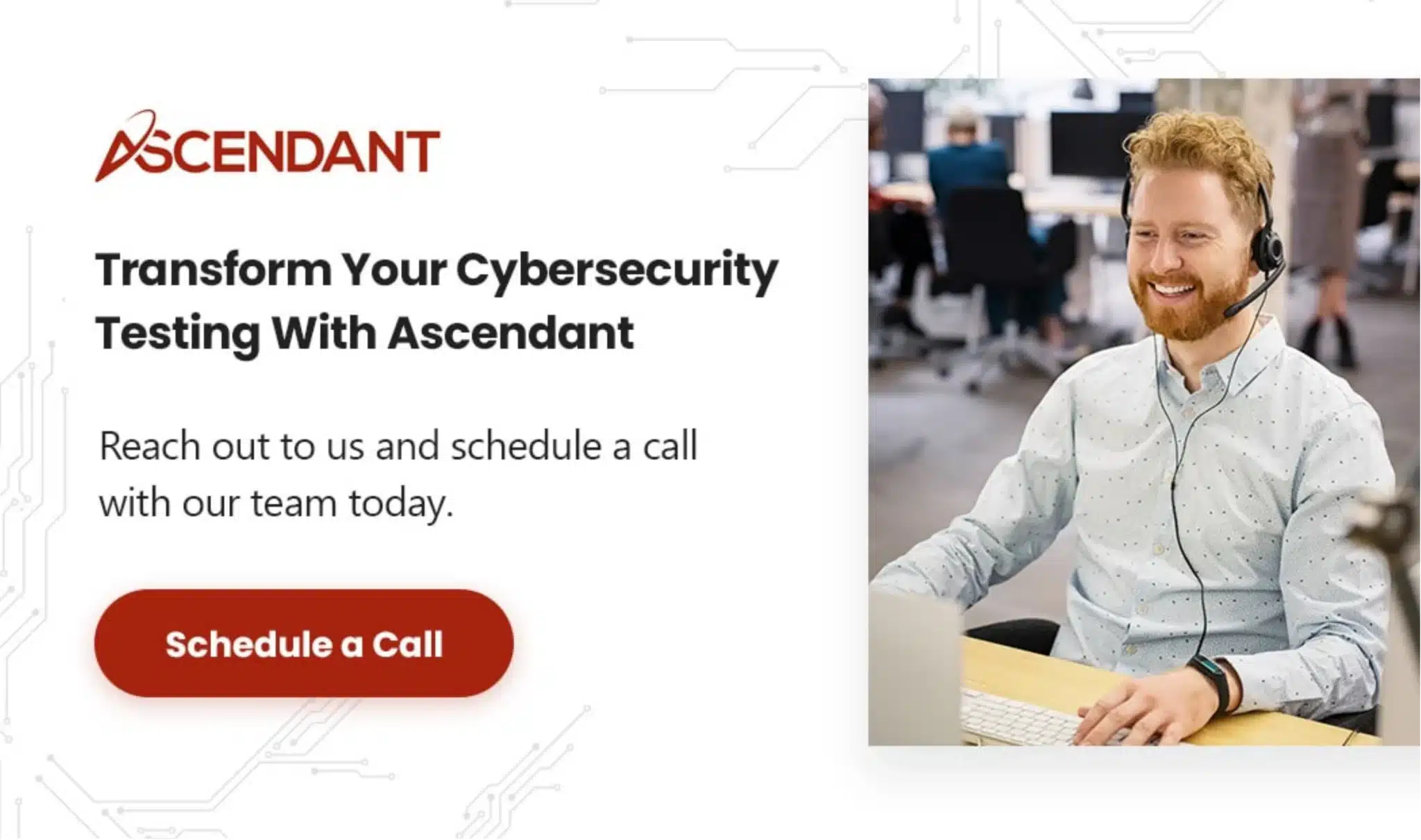Cybersecurity Testing for Businesses
Data is gold, especially for small to medium-sized businesses (SMBs). SMBs use data for anything from operational efficiency to customer satisfaction. To further underscore its importance, 48% of companies worldwide will focus their cybersecurity investment priorities on data protection or data trust in 2025.
How can SMBs protect themselves in a technology-driven world with ever-increasing cybersecurity threats? They may have cybersecurity methods and techniques, but they must stay current and resilient against evolving cyberattacks. For some, this means adopting continuous threat exposure management (CTEM) practices that provide an ongoing view of vulnerabilities and risks, rather than relying solely on periodic assessments.
One way is to know how to test cybersecurity efforts. Cybersecurity testing is a proactive approach businesses of all sizes can take to protect themselves and their customers.
What Are Cybersecurity Tests?

Cybersecurity testing evaluates a business’s digital systems to identify and address potential cybersecurity vulnerabilities that attackers could exploit. From your business’s applications to its networks, this process checks that everything runs smoothly.
Think of it as an SMB’s digital health check. It helps identify weaknesses and set up cybersecurity protection methods to safeguard your business against future threats. Building a strong human firewall through employee awareness and training complements this effort by ensuring staff are your first line of defense against cyber risks.
Implementing cybersecurity techniques and testing may have the following advantages:
- Protects sensitive data
- Ensures business continuity
- Identifies weaknesses before hackers do
- Keeps pace with evolving threats
- Helps businesses stay compliant
- Minimizes financial losses
- Builds customer trust
The problem is that some SMBs may not have cybersecurity practices in place. And if they do, they might not know that cybersecurity testing is an integral piece of the puzzle. Testing helps businesses save money and time, as illustrated by a few statistics.
For instance, in 2023, we saw a 72% rise in data breaches from 2021. The result? A hefty price to pay. Data breaches alone cost businesses over $4 million in 2024, a 10% increase from the previous year.
7 Types of Cybersecurity Testing
There are several cybersecurity assessment types that SMBs can use.
1. Vulnerability Testing
Vulnerability testing helps identify potential weaknesses in your systems. It uses automated tools to scan for any vulnerabilities, such as outdated software, unpatched security flaws and weak configurations. This process often includes a vulnerability analysis, which assesses and prioritizes each weakness based on its potential impact, helping SMBs make informed decisions about which issues to address first.
Vulnerability testing is a critical first step in strengthening your defenses because it provides a detailed map of where your systems are most at risk. It essentially helps you stay one step ahead of hackers.
For SMBs, this is particularly important because many attacks target vulnerabilities that have simple fixes — like a software update. When you address these issues early, you can significantly reduce the risk of breaches.
2. Penetration Testing (Pen Testing)
Penetration testing simulates a real-world cyberattack on your systems to see if a hacker could breach your defenses. Businesses will require a skilled tester or a team for this. The tester will act as the hacker and attempt to exploit vulnerabilities to determine how far they can go. Internal penetration testing, in particular, focuses on threats that originate from inside your network, such as a compromised employee account or misconfigured internal systems, making it especially useful for uncovering risks that external tests might miss. For businesses that rely heavily on Wi-Fi networks, wireless penetration testing can provide critical insight into vulnerabilities unique to wireless environments, such as weak encryption, rogue access points, or unsafe configurations.
Pen testing shows how well your systems would hold up under an actual cyberattack. This process will uncover technical flaws, such as weak passwords or unsecured networks, and procedural weaknesses, such as employee habits or ineffective policies. If your business does not have this expertise in-house, partnering with an experienced penetration testing provider can ensure the test is thorough, realistic, and aligned with industry best practices.
Pen testing for SMBs is invaluable as it goes beyond surface-level issues and simulates real-world results. It’s a form of cybersecurity screening that allows businesses to proactively identify and fix weaknesses.
For SMBs looking for even deeper insight, a redteam assessment can go beyond traditional penetration testing by simulating full-scale, multi-layered attacks that mimic real adversaries. This approach helps businesses evaluate not only their technical defenses but also how well their people, processes, and incident response strategies hold up under pressure.
3. Security Audit
A security audit evaluates a business’s cybersecurity policies, practices and infrastructure against industry standards and regulatory requirements. Ultimately, this type ensures your SMB meets compliance requirements.
Security audits also highlight possible gaps in compliance with HIPAA, for example. SMBs can use this information to build a roadmap for improvement to adhere to industry-specific standards.
With this type of test, the goal is not to fix a problem but to build a strong security framework to keep your business secure in the long term — and, as a result, build trust with clients and customers.
4. Risk Assessment
 Risk assessments identify potential threats to your business and evaluate their likelihood and impact. They consider cyberattacks, internal threats and even natural disasters.
Risk assessments identify potential threats to your business and evaluate their likelihood and impact. They consider cyberattacks, internal threats and even natural disasters.
This process helps businesses prioritize their resources by focusing on the most critical risks. For example, if your business relies heavily on a cloud-based system, a risk assessment might flag a data breach as a high-priority concern.
5. Posture Assessment
A posture assessment provides a comprehensive view of your business’s cybersecurity readiness. It combines the findings from security audits, vulnerability tests and risk assessments to create a big-picture analysis of your strengths and weaknesses.
For SMBs, this type of assessment is especially valuable because it connects the dots across all areas of your security. For example, it might reveal that while your network is well-secured, your employee training programs are lacking.
6. Network Security Testing
With network security testing, businesses can examine their network vulnerabilities — from its architecture to configurations. It checks for issues like unsecured devices and routers, open ports and weak Wi-Fi passwords.
The rise of remote work has introduced new vulnerabilities. If your employees occasionally work from coffee shops or public Wi-Fi, you need to conduct this test. Network security testing will help protect your internal and external networks against malware attacks, unauthorized access and data breaches. In some cases, advanced sandboxing techniques are used during this testing to safely execute and observe potentially malicious code without risking harm to the live environment.
7. Ethical Hacking
Ethical hacking? Yes, there is such a thing, and it involves hiring professional hackers — often called “white-hat” hackers — to attempt to breach your systems legally to uncover vulnerabilities.
Unlike malicious hackers, ethical hackers work with your permission to uncover vulnerabilities and demonstrate how they could be exploited. It’s another test that simulates a real-world scenario.
If you suspect your SMB could be targeted, or you want to go beyond automated testing, perform this test. These professionals often think outside the box, finding creative ways to bypass security that automated tools might miss.
Each type focuses on different aspects of your digital security, but together, they can create a layered approach to protecting your business.
Attributes of IT Security Testing
SMBs must know these attributes. They are the building blocks of a solid cybersecurity strategy that will help protect your business. It’s all about being proactive in protecting your business while keeping the following in mind:
- Confidentiality: Keep sensitive information private and ensure only the right people can access it.
- Integrity: Make sure your data stays accurate and hasn’t been changed without permission.
- Availability: Ensure your systems and data are ready and accessible when you need them.
- Authentication: Verify that someone is who they say they are, like checking an ID before granting access.
- Authorization: Decide what someone is allowed to do once they’re in — like role-based access control (RBAC).
- Non-repudiation: Provide proof that an action or communication happened so no one can deny it later.
- Resilience: Cyber resilience is the ability to prepare for and bounce back from any threat.
Earning IT certifications in security can also help SMB teams validate their knowledge and demonstrate a commitment to following industry best practices, strengthening overall trust in their cybersecurity posture.
Transform Your Cybersecurity Testing With Ascendant
Protecting your business is nonnegotiable in today’s digital world. With threats evolving daily, cybersecurity testing has become a necessity. At Ascendant, we specialize in helping SMBs like yours build a strong, secure foundation with cybersecurity consulting that fits your needs.
Let us take the stress out of cybersecurity so you can focus on growing your business. Reach out to us and schedule a call with our team today.


